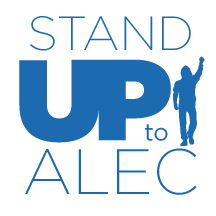When Gov. Sam Brownback delivered his 2013 State of the State message to a joint session of the Legislature, he said, “And of all those you could learn from, may I suggest paying particular attention to a teacher?”
Those kind comments were directed at me, a public school teacher going on 40 years and the Senate Democratic leader. The governor went on to introduce me to the joint session as the longest serving legislator in Kansas history.
I hope the governor will take his own advice here as well. He should pay particular attention to a teacher who voted against the school bill recently approved by the 2014 Legislature, as hundreds of other teachers spent the weekend camped out in the state Capitol in protest of the bill.
While passage of the bill now raises school finance “equity” issues beyond those cited by the Kansas Supreme Court in the Gannon v. Kansas case, the bill most certainly makes radical changes in education policy.
The bill creates for the first time tax credits for corporations to give out “scholarships” for public school students to enroll in private schools. This change in education policy comes at the inopportune time when state financing for K-12 public schools has been drastically reduced by Gov. Brownback and his legislative allies.
This provision, if signed into law, needlessly will undermine our state’s public education system that even the American Legislative Exchange Council (ALEC) ranks as the eighth best in the nation for 2013 student academic performance.
The second change in the bill would eliminate teacher due process rights — a law that’s been on the books for 60 years. Under current law, teachers have the right to know the reasons why they are being terminated and the right to a fair hearing to ensure those reasons are legitimate.

